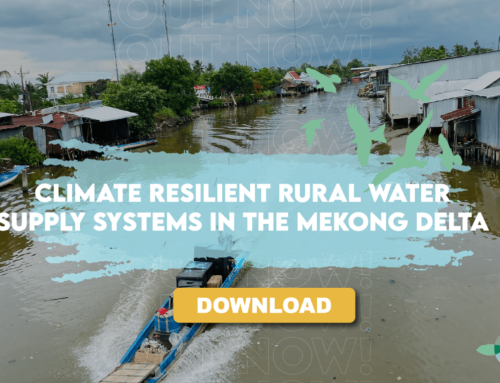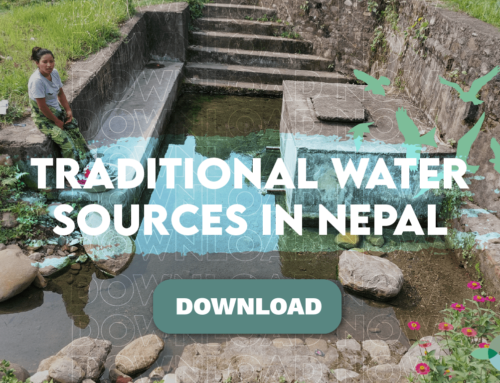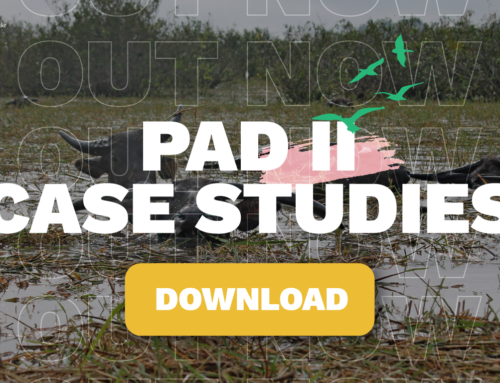Project Description
The Mekong River Basin faces a grave threat from climate change. Communities and governments must work together to develop and promulgate adaptation strategies that preserve the lives and livelihoods of some 60 million people. ICEM worked with DAI and SEA START as part of this U.S. Agency for International Development (USAID)-funded Mekong Adaptation and Resilience to Climate Change (ARCC) project to generate new data, new approaches and to spur adaptive change in the Mekong River Basin.
> Find out more about the Mekong Adaptation and Resilience to Climate Change (ARCC) project
The Climate Change Impact and Adaptation Study for the Lower Mekong Basin (LMB) was designed to serve as a model approach, describing the impacts on key livelihood sectors of the LMB including agriculture, capture fisheries and aquaculture, livestock, natural systems, health, and rural infrastructure.
The Climate Change Impact and Adaptation Study for the Lower Mekong Basin (LMB) was designed to serve as a model approach, describing the impacts on key livelihood sectors of the LMB including agriculture, capture fisheries and aquaculture, livestock, natural systems, health, and rural infrastructure. The Mekong ARCC Climate Study Team has now completed its final revision of this Study by addressing comments raised at the March Final Results Workshop in Bangkok, generated during the period of open public review, and from experts who formally peer reviewed technical aspects of the analysis. > View and download the Climate Change Impact and Adaptation Study: Full Report > Download the Mekong ARCC Climate Change Impact and Adaptation Study: Key Final Results This Social and Economic Assessment complements the other sectoral reports in the USAID Mekong ARCC Climate Change Impact and Adaptation Study by assessing the vulnerability to climate change of two critical sectors of household livelihood systems: health and rural infrastructure. Human health is critical to livelihoods because it is the foundation of productivity in all activities. Inadequate health access limits the capacity of individuals to farm, fish, gather NTFPs, or attend to livestock. Moreover, adequate health ensures the nutritional benefits of food consumption are realized and is an important, but often forgotten, component of food security. The inability of one working member of a household to work due to poor health reduces household income and therefore impacts on the income and food security of all members of a household and potentially the broader community. The countries of the Lower Mekong Basin (LMB) have seen significant advances in socio-economic development over recent decades. The overall incidence of poverty and food insecurity has declined in response to rising incomes, rural-urban migration, improved health conditions, and the expansion of rural infrastructure. Despite this progress, however, there remain tens of millions of rural poor who are dependent on the LMB’s natural resources and, by consequence, are highly exposed to climate change. The “hotspot” approach integrates and orients study findings and provides a scientific basis for the selection of focal areas for the community adaptation initiatives to be undertaken by USAID Mekong ARCC. The study team identified a subset of eight priority hotspot provinces that: The selected hotspots, therefore, share common traits with other provinces in the Lower Mekong Basin (LMB), which allows for replication and learning based on the new approaches to adapting generating from Mekong ARCC field programs. Priority province summaries contain brief, concise details on specific climate impacts anticipated for 5 hotspot provinces identified by the Climate Change Impact and Adaptation Study for the Lower Mekong Basin and the resultant livelihood vulnerabilities. In these provinces, Mekong ARCC will implement Ecosystem and Community-based Adaptation Initiatives through partners to provide local people with climate information that strengthens their ability to make informed decisions about the viability of their livelihood investments, in agriculture, livestock, fisheries and non-timber forest products (NTFPs), and actions they can take that reduce their vulnerability to climate change. Download Mekong ARCC Priority Province Summaries for:Mekong ARCC Climate Change Impact and Adaptation Study: Report Series

> View and download the Climate Change Impact and Adaptation Study: Summary Report
> Download the Mekong ARCC Climate Change Impact and Adaptation Study: Headlines
Agriculture Report

This agriculture sector vulnerability report provides a detailed summary of the issues and trends of climate change by ecozone.> View and download the Mekong ARCC Climate Change Impact and Adaptation Study: Agriculture Report
Fisheries Report

This fisheries sector vulnerability report provides an overview of the current state of the important capture fisheries and aquaculture systems in the Lower Mekong Basin (LMB), focusing on those elements that are threatened by climate change. It also presents a methodology and results for vulnerability assessments, for six climate change hotspots (Chiang Rai, Khammouan, Gia Lai, Mondulkiri, Kien Giang, and Stung Treng).> View and download the Mekong ARCC Climate Change Impact and Adaptation Study: Fisheries Report
Livestock Report

This livestock sector vulnerability report presents the results of the livestock evaluation components of the Mekong ARCC study. It establishes an initial baseline of the current status, trends, drivers, and tolerances of key livestock production systems in the Lower Mekong Basin (LMB) and hotspot provinces, then uses this information to develop hotspot province vulnerability assessments, and ultimately adaptation options for livestock throughout the basin.>> View and download the Mekong ARCC Climate Change Impact and Adaptation Study: Livestock Report
Protected Areas

This protected areas report provides an outline of protected areas (PAs) and biodiversity in the Lower Mekong Basin (LMB), and an overview of threats to PAs other than climate change, including land concessions, infrastructure development, illegal activities, and agriculture. The threats posed by climate change to PAs are then reviewed, followed by a series of case studies of climate change impacts, vulnerabilities, and adaptation options in four protected areas: 1) Nong Bong Kai Non Hunting Area – Thailand; 2) Nakai Nam Theun – Lao PDR; 3) Phnom Prich Wildlife Sanctuary – Cambodia; and 4) U Minh Thuong National Park – Vietnam.>> View and download the Mekong ARCC Climate Change Impact and Adaptation Study: Protected Areas Report
Non Timber Forest Products and Crop Wild Relatives

This Non Timber Forest Products and Crop Wild Relatives report considers the vulnerability of a few selected NTFPs and CWRs as examples from these hotspot areas. It uses a vulnerability assessment method considering the biological and climate tolerances of these species; comparing these first to the existing conditions and “comfort zones” of these hotspot areas, and then to the predicted climatic conditions.>> View and download the Mekong ARCC Climate Change Impact and Adaptation Study: Non Timber Forest Products and Crop Wild Relatives Report


An important output of the Mekong ARCC Climate Study is the identification of climate change hotspots. By determining the ranges where temperature, rainfall, and soil characteristics at specific geographic locations create conditions that transform ecosystems and alter productivity of crops, livestock, and aquatic systems, a better understanding is gained of how climate change will impact community livelihood and subsistence options.








